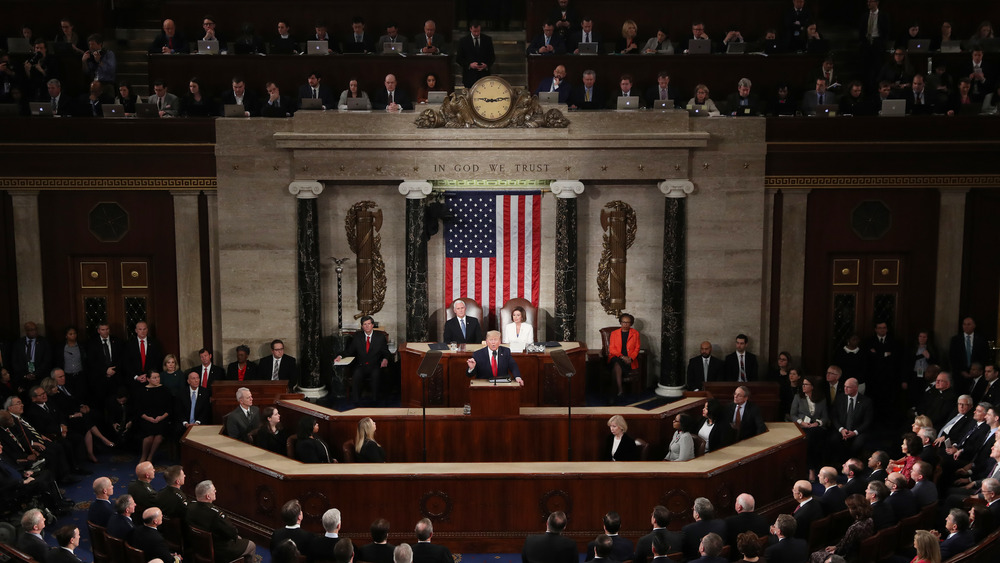Why It's Still A Big Deal If Trump Gets Impeached In The Final Days Of His Presidency
With less than two weeks to go before President-elect Joe Biden's inauguration, there may be some people who are wondering why there is still a need to launch impeachment proceedings against President Donald Trump — but the answer is not as simple as it looks.
When the Former President's Act was passed in 1958, the law acted as a guarantee that a president of the United States would never have to worry about his future again. Thus, there are perks that come with being a member of the Former Presidents' Club, including a pension of about $219,000 a year, health insurance, office space, and staff. They even get their travel expenses reimbursed for up to the value of $1 million a year (via National Taxpayers Union Foundation). They will be eligible for lifetime protection by the Secret Service, too. (Mother Jones says Trump has already cost taxpayers $1.1 million for Secret Service to stay at Trump International properties while in office.)
Then there is the pomp and circumstance of a funeral with full honors. When a former president passes away, they are entitled to a ceremony with full honors and, if requested, they can be buried in Arlington Cemetery. But all of this, which is paid for by the taxpayer's dime, would not be available to Trump if he were impeached. Most importantly, he could be banned from holding public office again (via The New York Times).
A second impeachment motion against Donald Trump would be tight, but not impossible
The New York Times says launching a second impeachment motion against President Donald Trump is not impossible because the House, which is in charge of filing the articles, will be doing so under a new set of charges. It also says the timing may be tight but it's not impossible. The House can bypass its Judiciary committee, take the motion to the floor, and vote to adopt the articles. They can then send the articles of impeachment to the Senate, which needs to begin a trial as soon as possible.
There is a precedent for trying top government officials for impeachment even after they have stepped down. The U.S. Senate historical archives notes that, in 1876, an impeachment motion was filed against William Belknap, war secretary of President Ulysses Grant. Belknap resigned to try and avoid being impeached, but the House persisted and impeached him for "criminally disregarding his duty as Secretary of War and basely prostituting his high office to his lust for private gain." He was tried by the Senate, but since the vote for the five counts did not receive the required two-thirds majority vote, he was acquitted.
If Trump is impeached next week, he would be the first president to be impeached twice.

